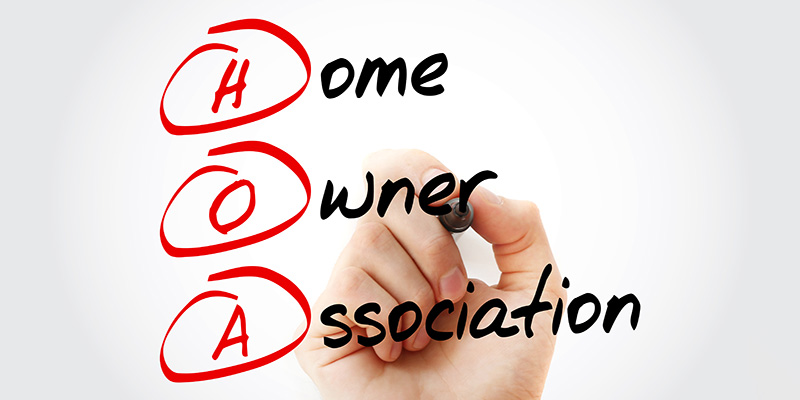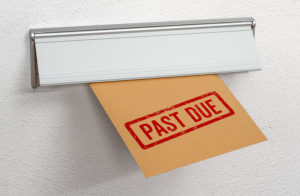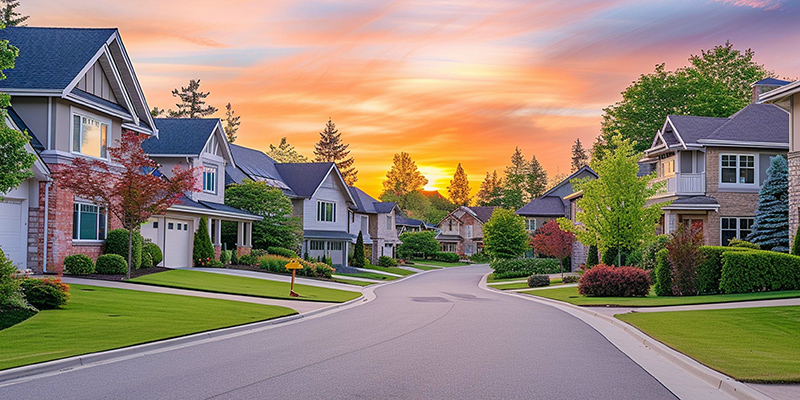What Is An HOA Or Homeowners Association?

What does HOA mean? HOA stands for homeowners association. But, what is a homeowners association and why do communities have them? Here is a guide to help you better understand the purpose of an HOA in a community.
Browse By Category
Sign up for Our Newsletter
What does HOA mean? HOA stands for homeowners association. But, what is a homeowners association and why do communities have them? Here is a guide to help you better understand the purpose of an HOA in a community.
What Is HOA? What Does HOA Mean?
HOA Meaning: A homeowners association is a private organization that consists of members of a community. It is headed by an HOA board, who are volunteers usually elected into position. The HOA acronym stands for “homeowners association.”
You now know the homeowners association definition, you must now understand its purpose. The main reason for creating a homeowner association is to increase property values. Through maintaining communal areas and enforcing rules and regulations, property values can go up immensely over time. These keep the overall community looking nice and keep the home somewhat cohesive.
How Does an HOA Start?
Now that you know what is a HOA, you must know how one is formed. After a developer creates a community, they usually create a homeowners association that acts as a non-profit organization. Similar to other non-profit organizations or corporations, there has to be a leadership team to run the HOA, which in this case is called the Board of Directors.
How to Join an HOA?
 By HOA definition, anyone who buys into the community becomes a member.
By HOA definition, anyone who buys into the community becomes a member.
When an individual or a family buys a home in the residential community, they automatically become a member of the homeowners association. When the community starts to grow, the developer hands over full control of the association to the residents.
The homeowners then elect a qualified Board of Directors who are interested in overseeing the community and its operations.
What Do HOA Board Members Do?
Once an HOA has been handed to the homeowners, they elect a qualified Board of Directors. These are volunteer homeowners who are interested in overseeing the community and its operations.
Board members receive authority to handle the day-to-day operations of the community—including managing finances, maintaining common areas, enforcing rules and regulations, collecting HOA payments, and creating annual budgets. The members may have additional duties based on their position on the Board.
Are Board Members Personally Liable?
HOA board members are given the authority to fulfill their duties and responsibilities. In exchange, they accept a fiduciary duty on behalf of the homeowners. As fiduciaries, board members have a legal duty to promote the wellbeing of the association, make sound and informed decisions, and act only within the scope of their authority.
The Business Judgment Rule protects board members from being personally liable for actions — as long as these actions were made in the best interests of the HOA. Directors and Officers (D&O) insurance is also an essential insurance policy that serves to protect board members from lawsuits made by disgruntled homeowners, vendors, or other third parties.
Are HOAs Legal?
 Every homeowners association has its own governing documents. These documents include CC&Rs, bylaws, rules and regulations, and ARCs. Governing documents shape how the community functions.
Every homeowners association has its own governing documents. These documents include CC&Rs, bylaws, rules and regulations, and ARCs. Governing documents shape how the community functions.
For instance, it outlines the powers and responsibilities of the Board of Directors. It also states the rights and responsibilities of homeowners. All of this help protect the community’s property values.
HOA communities still have to follow their local, state, and federal laws. For instance, communities cannot enforce rules that go against the Fair Housing Act and the Americans with Disabilities Act.
What Are HOA Rules and Regulations?
HOA rules and regulations vary from different associations. Most of the policies within the guidelines deal with architectural enjoyments such as fences, pools, porches, and other exterior home additions.
When buying a home in a homeowners association, most people place value on the house and its surroundings. They want to be proud of their communities’ appearance. This way neighbors that don’t care or don’t have the time, must cut their lawn and make sure the exterior of their home is acceptable and attractive.
Are There Benefits of Living in an HOA?
The biggest advantage of a homeowners association is the shared common areas within the community. Most associations have pools, clubhouses, volleyball courts, and other fun amenities that one could not afford on their own. Luckily, anyone living in the community can take advantage of these comforts.
Having a board is also a benefit of living in an HOA. The board ensures that homes and communal areas are beautiful and well-maintained. As a result, homes in HOA communities typically enjoy higher and more stable property values.
What Are the Disadvantages of Living in an HOA?
In an effort to increase or stabilize property values in the community, homeowners will have to abide by the strict rules and regulations imposed by the association.
These rules are outlined in the community’s CC&Rs, bylaws, or governing documents. This means that homeowners cannot alter the exterior of their property however they want. They have to abide by architectural standards that dictate design schemes, paint colors, and so on.
It can also be expensive to live in an HOA community because of the fees you have to pay each month. This can be a strain on homeowners’ expenses, especially if the HOA is not properly managing the community. Homeowners can also receive notice violations and fines for not following the rules and regulations.
What Is an HOA Manager?
Not all board members have the experience or expertise to run a community. As such, many associations decided to enlist the services of an HOA management company.
The HOA manager handles the day-to-day operations of the community including accounting and bookkeeping, maintenance, collections, and budgeting. With essential but time-consuming tasks taken care of, the board can have more time to focus on urgent and more important community matters.
What Are HOA Fees?
In exchange for joining a community, homeowners must pay HOA fees each month. The association uses these fees to pay for the upkeep and maintenance of shared common areas. It also uses the money to pay for common utilities such as garbage disposal, water and sewage, and electricity. The fees also cover other expenses such as insurance, HOA management fees, and reserve contributions.
How Much Are HOA Fees?
HOA fees will vary for different associations. On average it is about $200-300 per month, but this value can increase depending on several factors. For example, a community with plenty of amenities will have higher upkeep costs, which will then result in higher fees.
The amount can also be higher if communities have large-scale projects in the pipeline or if the association is trying to replenish its reserve funds. The Board prepares an annual budget to determine how much to collect in association fees.
What Happens If You Don’t Pay HOA fees?
 If homeowners do not pay their dues on time, the HOA Board or management company can collect late fees or penalties.
If homeowners do not pay their dues on time, the HOA Board or management company can collect late fees or penalties.
These are necessary to keep the community’s budget on track. Depending on the community’s bylaws, homeowners who do not pay fees may be restricted from communal areas until they are able to settle their debt.
A homeowner who continuously does not pay HOA fees can be declared delinquent. In extreme cases, the HOA can place a lien on the delinquent homeowner’s property or file for a foreclosure to settle unpaid dues.
Are HOA Fees Worth It?
Homeowners must weigh the pros and cons of HOA living to determine whether paying monthly fees is worth it. However, if homeowners see that their community is not being managed properly, they may feel that the association fees are not worth it.
In these instances, homeowners must take action. They can speak to the board about low-quality service providers, or even run for a board position if they see that the current members are inefficient. HOA fees can be worth it if you get a close, tight-knit community in return.
What Are Reserve Funds?
When homeowners pay their association fees, a percentage of that amount goes to the HOA’s reserve funds.
Reserve funds are like a savings account; it pays for large-scale maintenance expenses such as roof replacements and pavement resurfacing, as well as capital improvement projects such as a new playground or amenity. Operational costs and other community expenses do not fall under reserve funds.
How Do You Calculate Reserve Funds?
To know how much reserve funds they need, HOAs must conduct a reserve study. In some states, the law requires HOAs to conduct a reserve study every three years. Even if there is no law in your state, it’s good practice to have one anyway.
A reserve study will analyze the HOA’s major assets and determine the remaining useful life of each one. A reserve specialist also looks at the HOA’s finances to determine which funding option is best. The results of the reserve study will indicate how much money should be in your reserve funds.
Do Homeowners Pay a Special Assessment?
A special assessment is a one-time fee levied on homeowners. The HOA usually collects special assessments when the HOA does not have enough money in its reserves to cover large and unexpected expenses.
For instance, a roof replacement happens every 20 years. However, if it is damaged by a storm before that, the association might not have saved enough. Since a roof is a necessary feature, the HOA will levy a special assessment to cover the costs of a roof replacement.
Special assessments will depend on the state’s laws and the community’s bylaws, but generally, homeowners must pay them. Just like association fees, there can be fines and consequences if homeowners refuse to pay the special assessment.
Can An HOA Kick You Out?
An HOA cannot kick out its homeowners. However, if homeowners fail to pay assessment fees, the association can place a lien on their property. Delinquent homeowners will have to settle the unpaid assessments, interest charges, and even attorney fees before they can sell their property. Some associations also have the authority to foreclose on properties that have a lien. This will depend on your governing documents, as well as the local laws in your state.
A Better Understanding of Homeowners Associations
By now, you have a clear answer to “What is HOA?” Residents like to see a well-put-together area where they live and call home. Ultimately, a homeowners association is in charge of the upkeep and safety of the neighborhood. They make sure the residents are happy.
RELATED ARTICLES:
- COA, POA vs HOA: Breaking Down Each
- HOA Budget Best Practices Every Board Member Should Know
- Have Bad Neighbors? What To Do Legally
Trending Now
Related Article
Sign up for Our Monthly Newsletter
Sign up below for monthly updates on all HOA Resource
















